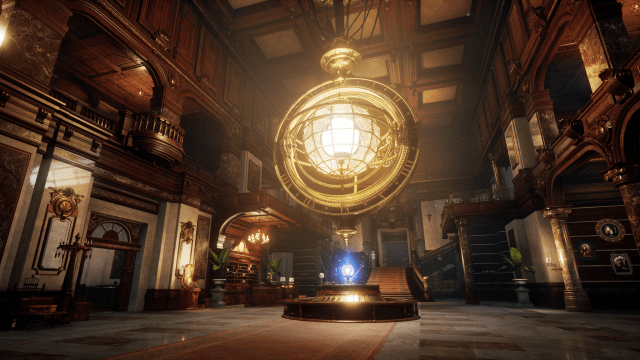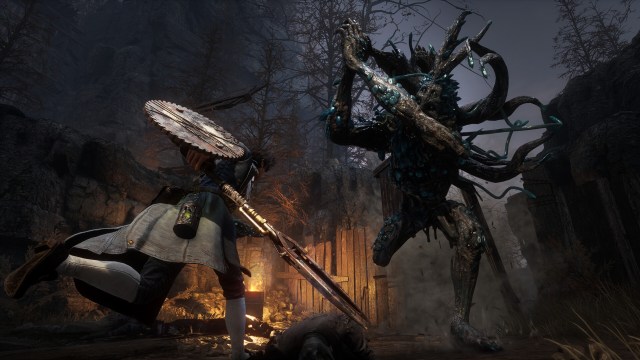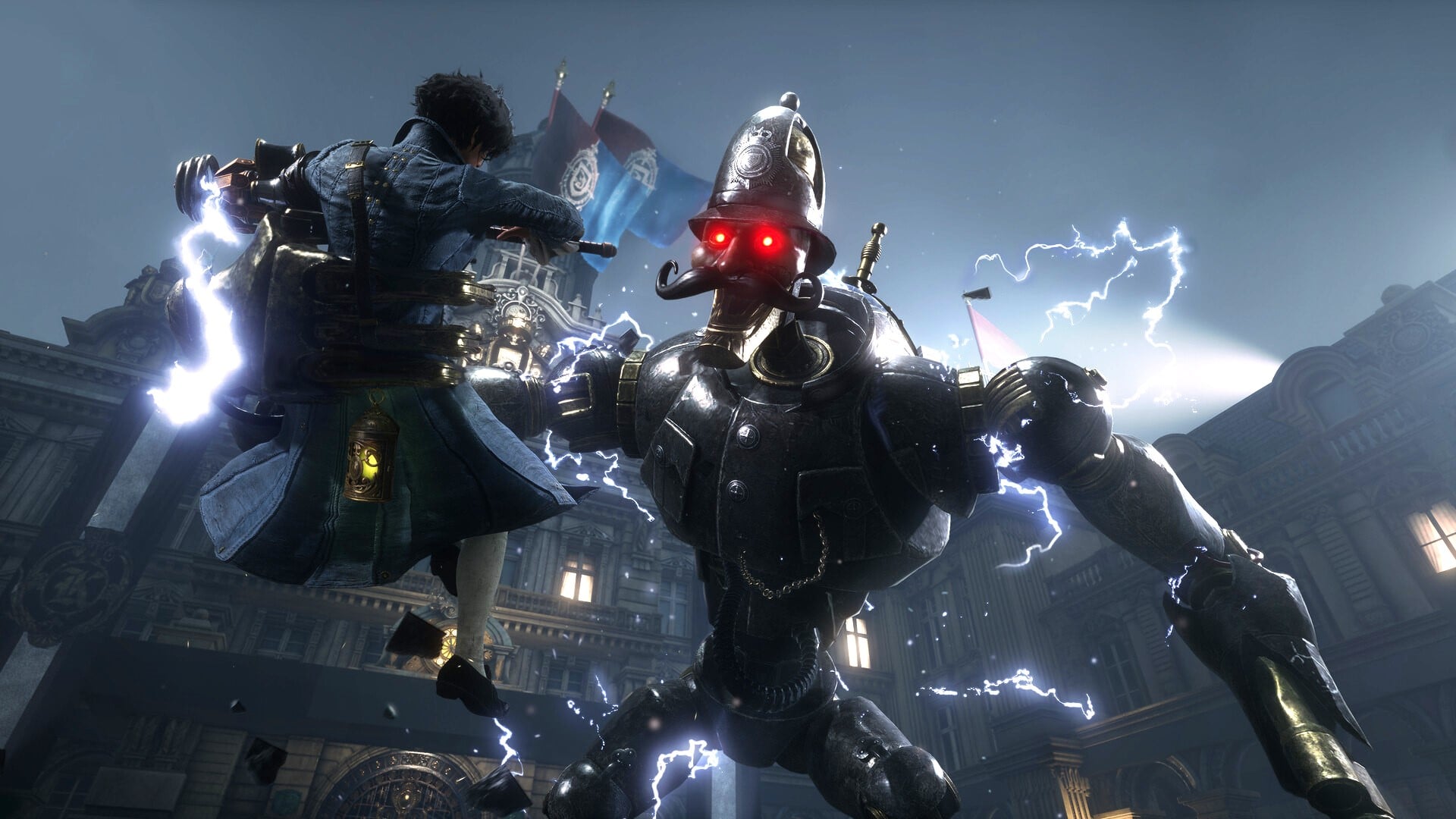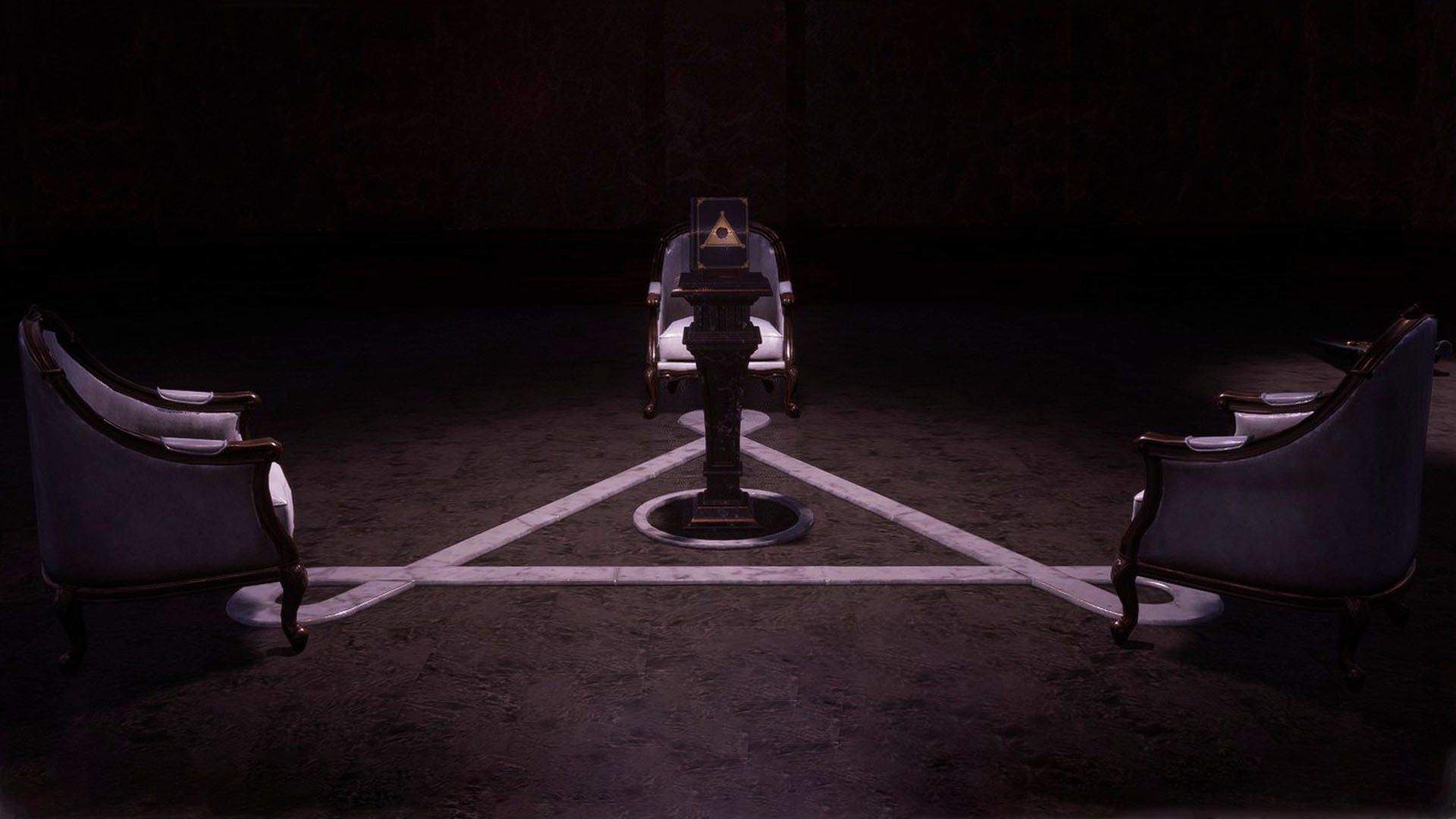Becoming human is central to Lies of P, but I didn’t expect puppet protagonist P to feel so lifeless. He is mute (contrary to other puppets) and does whatever’s expected of him without question. While P can perhaps get away with being so wooden, the game’s world and human characters feel as stiff as their marionette protector, and that’s more of an issue.
When you rescue Gepetto from an inevitable death at the start of Lies of P, he’s perfectly calm and happy to see you, rather than shaken from having been hunted down by a Mad Donkey. It’s the same for the others you rescue. They all navigate the crumbling city of Krat like it’s a walk in the park, emotionless and dull. Maybe they’re all puppets, too.
That’s my biggest disappointment after playing over 30 hours of Neowiz’s Soulslike game. I have yet to reach the end of the story, but each hour spent in the desperate streets of Krat dampens my hopes of finding some life in the world. Combat feels great; it’s undoubtedly the strongest selling point of the title. But without a compelling story, interesting characters, or a deep world to explore, the fights seem pointless.
Wandering in emptiness

The first level of Lies of P, which was available in the demo, is the only I played which actually immersed me in its world. You’re tasked with saving the city of Krat from madness and bloodlust, while finding your way to humanity to become a real boy. Discovering a city overrun by machines, with police puppets trying to kill you with stop signs and humans corrupted by a mysterious and deadly sickness, is the perfect gateway to this dark and turbulent world of Lies of P. But once the stage is set, the story drags its feet. I had expectations for the next chapters, but didn’t discover much more about what happened in Krat.
Levels are very linear and environmental narration feels incomplete, despite interesting ideas. For example, P can execute gestures (such as sitting or showing off clothes) that can trigger events in the world, such as a character revealing a bit more about their background with a comment. This gives you a tidbit of lore and Ergo, the XP resource that represents the growing humanity of P. At first, I executed these gestures everywhere, and finding the lore they unlocked felt somewhat rewarding. But often these events can be hard to trigger, and there aren’t many of them throughout the game, so I ended up giving up and forgetting about them.
This lackluster approach to narrative elements can be seen throughout the game. Oftentimes, you pick up a letter in a ruined building that reads: “This place is condemned, we’re all dying here.” Thank you for the heads up, I guess. What you discover by those means doesn’t add much to the story. It’s frustrating, especially considering that this unique twist on Pinocchio’s story, transposed in a Steampunk-themed robot uprising, showed much promise.
Wielding a Sawblade like a Dagger? No problem.

I experienced much frustration while progressing through Lies of P, but part of this is intended. Lies of P is a deliciously difficult and punishing title. Some hardcore Dark Souls fans who played the demo called it a “love letter” to the genre. There is truth to that: Soulsborne fans will feel right at home with Lies of P. It mixes combat elements from Bloodborne and Dark Souls to carve its own path in the genre.
Weapon assembles are undoubtedly what makes Lies of P feel unique combat-wise. You can divide all your weapons into two pieces, combining their head and handles to make new, distinct ones. It makes every fight different. There are over 100 combinations in the game, and they don’t feel clunky. Since disassembling weapons doesn’t require resources, you’re free to experiment at will. Fable abilities, which you charge up by hitting enemies and unleash, look awesome and add to the weapon’s uniqueness.
Still, you have to find assembling builds that work. Lies of P is merciless and uncompromising, and you could spend hours trying to beat the hardest bosses. On the other hand, Neowiz’s action-RPG removes some of the most frustrating parts of Dark Souls, which make progression hell when dying too much. For example, you have Stargazers to teleport close to boss areas, and can pick up the XP (called Ergo) you lost if you died during the fight in front of the area.
These tweaks make it perfect for players less acquainted with the genre. In addition, most players will be able to understand the story easily, as it’s a dark twist on the classic tale of Pinocchio. That’s what makes the narration issues all the more frustrating: it could have been so much more, with so little.
Lies of P is fun, but forgettable

Overall, Lies of P is a wonderful Soulslike game. It’s all about boss fights and experimenting with builds, but I quickly forgot about everything in-between. While P leans closer to humanity, I progressively transform into a puppet: I do what I’m told and hone my combat skills through boss fights, but I don’t feel anything outside of the satisfaction of a job well done when I defeat them.
Maybe that’s how you’re expected to feel in most Soulslike games. But that limits Lies of P to an average action RPG. With a deeper world and more complex characters, or level design and movement mechanics to give some sense of freedom, it could have been a game you wouldn’t forget.










Published: Sep 14, 2023 09:21 am